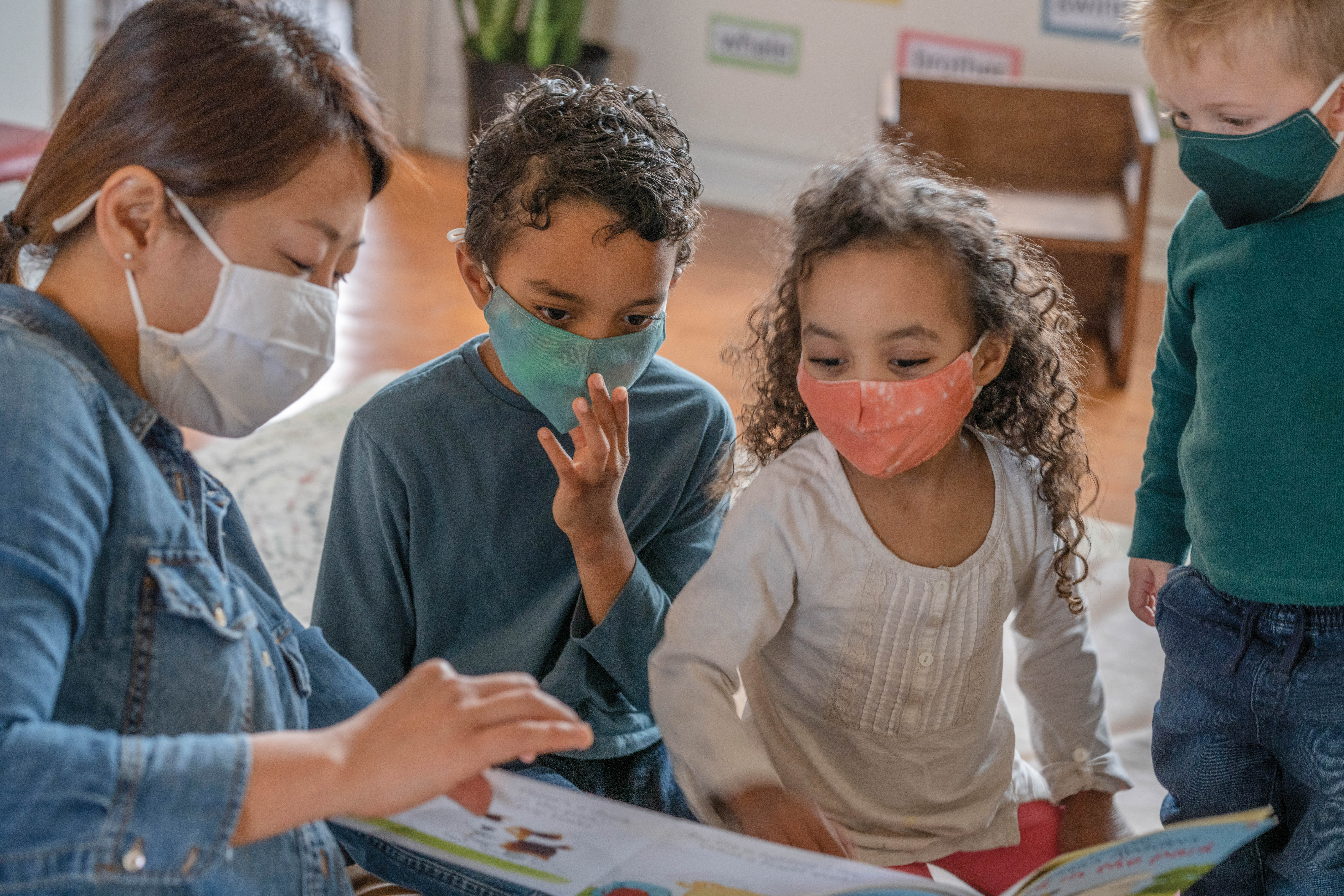Share this page
Ontario Certified Teachers have a legal and ethical obligation to report suspected child abuse or neglect.
By Stuart Foxman
Photos: istock
View our Great Teaching archive.

During her online class last winter, Jenny Chan, OCT, was checking in on her JK students. She could see each on her computer. One was playing around and not paying full attention. Typical for the age, says Chan. Suddenly, on the screen, Chan saw an adult hit the child in the head.
The blow knocked the student off a chair. "I was shocked," says Chan, who teaches at a public school in the Toronto District School Board.
Chan quickly messaged the early childhood educator (ECE) who was running the class with her. "What just happened?" they said to each other. The child hadn't reappeared onscreen. As the ECE took over the class, Chan contacted the Children's Aid Society (CAS) and notified her principal.
Although it's disturbing to see such an incident live on-camera, Chan knows that child abuse and neglect happen far too often. That's why she's so familiar with the College's professional advisory on the duty to report.
As the advisory outlines, Ontario Certified Teachers (OCTs) must report suspicions directly to a CAS, which has the mandate (under the Child, Youth and Family Services Act) to investigate and deliver child protection services. This duty applies not only to OCTs but also to others who perform professional or official duties with respect to children: health-care workers, operators or employees of child-care programs or centres, police and lawyers.
The legal and ethical duty to report supersedes all other obligations for OCTs, even if a student reveals something in confidence. In fact, failing to carry out this duty can be grounds for professional misconduct, as well as a fine under Ontario legislation.
In 2018, Ontario saw about 150,000 investigations for possible child abuse or neglect, according to the Canadian Child Welfare Research Portal. "It's a problem that shows up in every school, I guarantee," says Andrew Kesteloot, OCT, who works in the guidance department at Arthur Voaden Secondary School in St. Thomas, Ont. "This doesn't fit into one demographic. I've seen students from every background who have to deal with these situations."
He heeds the advisory's reminder to be alert for signs of abuse or neglect. Teachers aren't the only ones with a duty to report. But they do see the same children day after day, making them uniquely positioned to notice changes in student behaviour, says Kesteloot. "That's the number one thing. You get a sense of when something is off."
For instance, has the usually happy-go-lucky student become withdrawn? Has a student become unusually aggressive or defiant? Has school performance quickly declined? That gets Kesteloot's attention, and can at least prompt a conversation with the student.
Different signs can have multiple explanations. You don't have to jump to conclusions, but keep your antenna up, says Mary Elise Harold, OCT, an assistant principal and Grade 1/2 teacher at St. Augustine Catholic Elementary School in Dundas, Ont.
She has carried out the duty to report approximately 10 times over a 20-year career. One involved a middle school student who began lacking clean clothes, wasn't showering, was bringing lunch sporadically, and was falling asleep on the desk. Individually, the signs might not point to abuse. Together, they alarmed Harold, especially when she could never connect with the student's parent.
"Seeing the dramatic change was enough for me, and having no response from home was huge," says Harold. She called CAS, which triggered help that the family needed.
Whether physical or behavioural, signs of abuse or neglect aren't always evident. But students might confide in a teacher if they feel a connection with them. The College advisory discusses the ethical underpinnings surrounding the duty to report, including care, a commitment to students' well-being and empathy in practice.
Kesteloot strives to forge respectful and nurturing relationships with students. That's part of being an effective teacher in general, and can help students to come forward with any issues.
Over his career, Kesteloot has had students tell him about witnessing domestic violence in the home, and being physically abused by a parent. In both cases, he made reports to CAS. Show you're a trusted and caring adult, he says, and students will start opening the door.
"Children need to feel safe and feel heard," adds Harold.
A student once shared a drawing that alarmed her. It depicted a violent scene. She had a heartfelt talk with the student, who shared enough to make Harold call CAS. The picture was "a cry for help," she says.

"You have to let students know you have their best interests at heart," Harold says.
Another way to do that is to tell them about their rights, and what constitutes abuse and neglect. That's also part of the College advisory.
Chan and Harold have done that in health units, for instance talking about how nobody has the right to touch you without consent. Once, Chan read a book to her Grade 1/2 students that referenced children going to a shelter. She felt that talking about it in class would educate students about abusive situations and make it more likely they'd disclose if they were in one.
How sure do you have to be to carry out the duty to report? From the advisory: "You don't have to be certain that a child may need protection. Suspicion on reasonable grounds — information that an average person, using normal and honest judgment would need to decide — is reason enough to report."
Chan errs on the side of caution and would make a CAS call even if her suspicions just rated a three on a scale of one to 10.
To Kesteloot, the threshold for reporting (in the absence of strong evidence or disclosure by a student) is a strong suspicion that something is wrong. "There's just a feeling, as cliché as that sounds, and it's time to make the call."
Sometimes, a suspicion turns out to be nothing. And unfortunately that report could create tumult for a family. Other times, a student could become upset because their confidence was betrayed. "Those are real possibilities, but the advisory is clear," says Kesteloot.
"My education philosophy can be summed up as this: whatever I'm doing should be best for the students. So is it best that CAS is made aware of concerns? It always is," he says.
Everything will come out in an investigation, says Harold. "Whatever is supposed to happen will happen," she says.
Harold still has vivid memories of the first time she had to make a report, just months into her teaching career. "It shook me so much that I almost wanted to quit," she recalls.
She was talking to a junior class about health, and a student asked about drugs, specifically marijuana. When Harold said it's illegal (as it was at the time), the student got quiet. At recess, the student stayed back and told Harold they were worried they were doing something wrong. It came out that a parent was forcing the student to smoke marijuana, daily, as part of a household routine.
"I called CAS right away. I was devastated, and felt so bad for the child," says Harold.
CAS removed the child from the home. Many years later. Harold ran into the student, by then in their late teens or early 20s. The student was doing OK and thanked Harold, saying who knows what would have happened without that call to CAS.
"You don't guess, you just report," says Harold. "Your job is to keep the child safe."